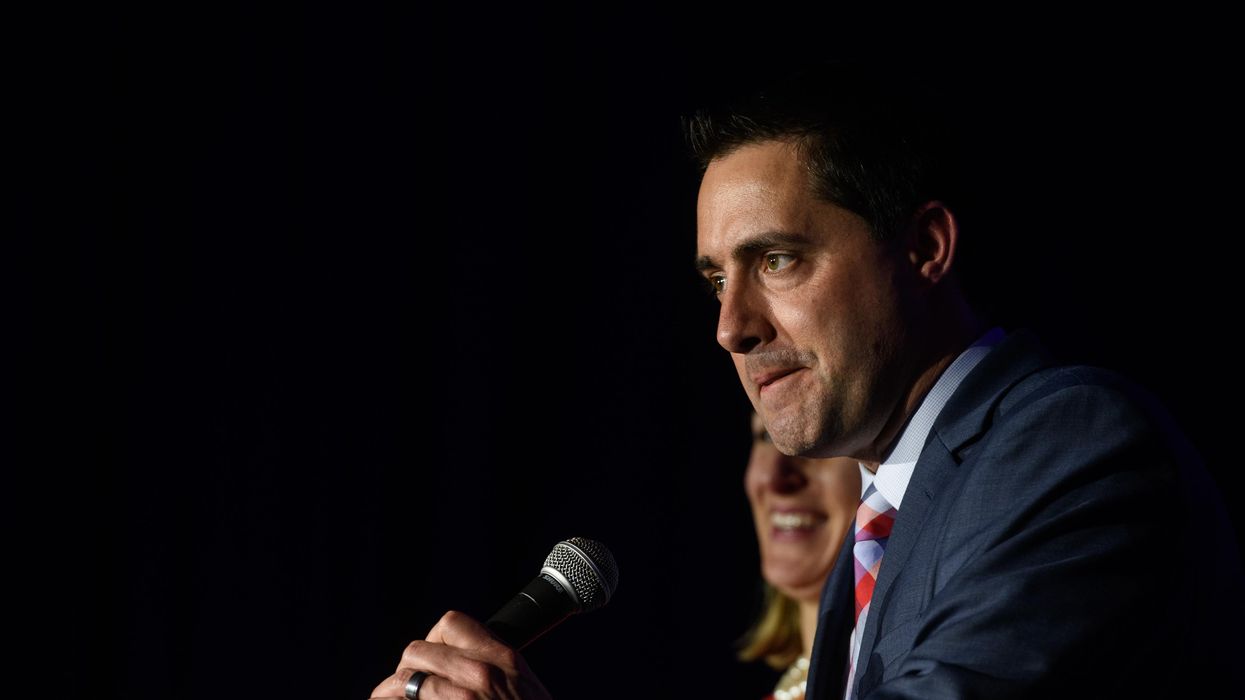Johnson is executive director of the Election Reformers Network.
The threat could hardly be clearer: Some candidates for secretary of state deny the verified outcome of the 2020 election, raising serious questions about whether they’ll reject results – and the rule of law – if they gain office.
In response, political opponents from both parties have launched efforts to defeat election deniers at the polls this fall.
Given the clear and present danger these candidates pose to our democracy, that’s a good thing. But political action committees and opposition ads, on their own, are Band-Aids. They may succeed in keeping some deniers out of power. But, with 10 states — including swing states Arizona, Michigan, Nevada and Pennsylvania — at risk of putting deniers in office this cycle alone, an electoral strategy won’t succeed everywhere, in this cycle and for the future. It also does nothing to address the rising threat that partisan poll workers will advantage their side at the precinct level.
We need to think bigger. To address the threat for the long term, as well as to help restore voters’ trust in the system, it’s time to follow the lead of almost every other advanced democracy by ensuring that impartial professionals, not partisan politicians, run elections.
There’s fresh evidence that voters in both parties want to move in this direction. A new nationwide poll commissioned by the Election Reformers Network found that 82 percent of respondents said it’s very important that election officials act in an impartial manner. Sixty-eight percent agreed that it’s difficult to trust the impartiality of election officials who are elected with a party’s backing. And clear majorities would support barring election officials from taking certain partisan steps like raising money for other candidates or overseeing decisions that could affect their own re-election.
States can use a range of approaches to move toward impartial election administration. They can make contests for chief election officials more nonpartisan, both officially and in practice. They can bar candidates from overtly political acts like supporting or fundraising for other candidates. And, just as you wouldn’t hire someone without experience as a plumber to fix a leaky pipe, states can require that candidates seeking to run elections actually have some experience, you know, running elections. Had ERN’s draft legislation requiring such experience been in place, almost all of the election-denier candidates for secretary of state would not have qualified for the ballot.
Doing more to ensure that the people who run our elections are impartial isn’t a new idea. The Carter-Baker commission, created after the 2000 presidential election, called for nonpartisan state oversight of elections to prevent a repeat of the blatant partisanship of Florida Secretary of State Katherine Harris. But states continued to muddle through with partisan systems, and the issue faded. Now, though, the rise of election deniers infiltrating election management makes clear that action is needed.
Moving to impartial election administration would help shore up faith in our system more broadly. Because most states use partisan elections to pick their chief election official, candidates for the job must win the backing of their party, and that means they have little choice but to function like partisans. This cycle alone, Ohio Secretary of State Frank LaRose endorsed fellow Republican J.D. Vance in his state’s Senate primary, calling Vance “a candidate we know can defeat the Democratic nominee.” And Colorado’s Democratic secretary of state, Jena Griswold, has chaired a political action committee raising big sums to elect Democrats.
Let’s be clear: LaRose and Griswold are operating within the political logic of a system they can’t be blamed for. But in today’s hyperpartisan era, Ohio’s Democrats could well question how fairly LaRose will administer a Senate race where he’s named his favorite, and Griswold’s extensive support for Democrats in other states could spur similar concerns among Colorado Republicans. The PAC Griswold chairs says its fighting against “Big Lie advocates running to oversee elections;” but let’s see whether it spends some cash on the more prosaic goal of simply helping Democrats win in Washington, Colorado and states where the challengers are experienced election professionals, not “Big Liers.”
In all likelihood, these candidates will do their jobs fairly in office, b ut statements and activities like these undermin e voter confidence at a time when we should be doing everything we can to restore it.
Only by reforming our system of partisan election administration can we give candidates incentives to act differently. With 2023 state legislative sessions ready to kick off in January, now is the time for lawmakers to start work on measures that can ensure election officials are qualified and impartial. Candidates running today for election official posts can publicly commit to high standards of conduct, including not fundraising for or endorsing candidates, especially candidates whose future races they will administer.
The threat to democracy posed by election denialism is so urgent that we need to use every tool available to fight back. If all we do is try to defeat this movement at the polls, we’ll be forever fighting an almost unwinnable battle. Only by taking a bolder, legally binding approach can we truly protect fair elections for the long haul.




















Trump & Hegseth gave Mark Kelly a huge 2028 gift